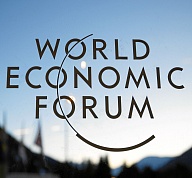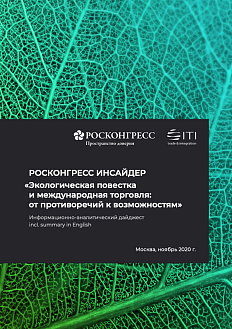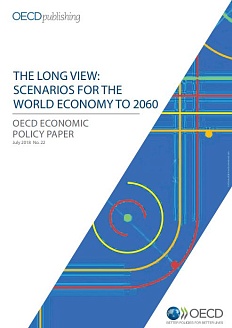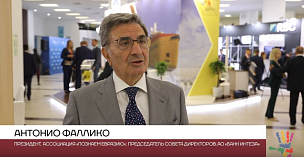The World Economic Forum Annual Meeting was held on 22-25 January 2019 in Davos, Switzerland. This event remains a key meeting of the worlds foremost political and business leaders and eminent members of civil society and academia who gather to shape global, regional, and industry development programs in the context of the Fourth Industrial Revolution. Specially for the Annual Meeting, a whole range of publications on the events agenda were issued, including the Globalization 4.0. The Human Experience report by Qualtrics.
The following phenomena were identified as key global trends which are going to have a direct effect on the development of global economy in the nearest future:
- Deglobalization, transition from capitalism to a new economic regime
A slowdown in globalization was recognized as the main trend by the majority of the participants. Opinion was only divided as to the rate of the slowdown: while some participants for example, the International Monetary Fund forecasted an insignificant general slowdown of global expansion, others allowed for the possibility of a greater downturn. Notably, many global political and business leaders were absent from the Annual Meeting, and the pool of the attendees was lacking solidarity about supporting the globalization path.
.png)
Source: International Monetary Fund
According to a survey of over 10 thousand respondents from 29 countries conducted by Qualtrics this January, respondents from South Asia and Sub-Saharan Africa demonstrate the greatest conviction that cooperation between country leaders is beneficial, while respondents from Western Europe and North America are the least positive about this, which is a sign that global demand for globalization is shifting. In accordance with this trend, this Annual Meeting was notable for an increased importance attached to issues related to stability of emerging markets, accelerated innovation and infrastructure transformation in South Asia and Africa, with India perceived as a potential bright spot which can boost global growth and development.
Question: Generally speaking, when leaders from different countries work together is it good or bad for people like you?
.png)
Based on data from the Globalization 4.0. The Human Experience report by SAP + Qualtrics.
- Unsettling of the worlds liberal economic establishment
The Annual Meeting was an epicenter of holding economic neo-liberalism directly responsible for the numerous economic problems that we are already facing and will face in the future. Chinas unilateral policy which has caused international business community and some of the geopolitically leading nations to lose faith in China and unilateral trade restrictions introduced by the USA which have culminated in US Secretary of State Mike Pompeos urging the world to embrace «trumpism» both evidence the ongoing crisis of liberalism. Moreover, nobody in Davos suggested a comprehensive approach to solving this problem.
- Projected global tightening of fiscal regimes in nearly all the countries
According to the World Economic Forum experts, nations across the world lose from 100 to 240 billion dollars annually as tax losses. Despite the rapid spread of digitalization and openness which are perceived as attributes of globalization and enable national governments to make their taxation systems more effective, the latter dont seem anxious to do that, nourishing plans to increase tax rates instead. The international charity organization Oxfam in its report titled Public Good or Private Wealth? is calling for a cautious approach to amending taxation so as not to aggravate economic inequality which is already strong.
- Growing influence of social media
Billions of people throughout the world have already grown in the era of social networks. Today, social media are not only service providers but a connecting link between members of the global community. This trend has both positive (facilitated communication and exchange of information) and negative (loss of «live» communication skills, cyberthreats) sides.
- Shrinking real incomes, including those of people in developed countries
In this respect, global regions (Western Europe, the USA, Latin America, Eastern Europe) differ not so much in manifestations of the trend as in the rate at which real incomes of their populations are shrinking. Vice President of the Peoples Republic of China Wang Qishan declared at the Annual Meeting that countries need to «adopt effective policy measures to prevent the worsening of income inequality».
- Growing geopolitical uncertainty
David Lipton, the Deputy Managing Director of the International Monetary Fund, clearly signaled an economic downturn over the horizon. The deepening trade conflicts will further worsen the economic outlook and gradual breakdown of liberal democratic state structure along with escalating social tensions will contribute to economic uncertainty.
- Unreadiness to the outcomes of technological development
Today, new technologies (such as artificial intelligence, the Internet of Things, etc.) are rapidly growing and are introduced by businesses all over the world. However, up to the present day no one has managed to work out a systematic plan to mitigate or minimize the negative consequences of this process and put the global technological development back on a constructive track.
The topic of Russia hasnt raised any particular concerns at the Annual Meeting. In international media, our country appeared as a partner, able to have a productive practical dialog and play the part of a «citizen of the world».
The Russia House project has proven its effectiveness as a platform for promoting Russian initiatives at the Annual Meeting. This year, the participants of Russia House have made constructive proposals on how to stabilize global collaboration and sustain a dialog in the international arena. The emphasis was on supporting neo-liberal global agenda, stimulating technological development, boosting entrepreneurship and digitalization, developing human capital, and enhancing cybersecurity.
As emphasized by Maxim Oreshkin, the Minister for the Economic Development of the Russian Federation, «an extensive growth of Russias economy <...> is only possible through adopting new technologies, increasing labor productivity, and optimizing processes». The attendees of Russia House acknowledged that the current level of cooperation and integration between stakeholders on various global markets is insufficient, so, under the current economic pressure, its sensible to use all opportunities that come along. To that end, Russia continues to introduce and successfully implement new technological solutions both in the private and in the public sector while reducing state regulation of business and developing human capital. At the same time, Russia collaborates with other countries to transfer experience in creating and using technologies and digital platforms which make it possible to integrate entrepreneurship on a global scale.
Sources:
- Official website of the World Economic Forum.
- Official website of Russia House at the World Economic Forum.
- Globalization 4.0. The human experience // Qualtrics, SAP.
- Public Good or Private Wealth // Oxfam.
- M. Mahmood. World Economic Forum, 2019: Overshadowed by crisis.
- F. Mathuros. World Economic Forum Annual Meeting 2019 Closes with Initiatives to Address Global Problems.






